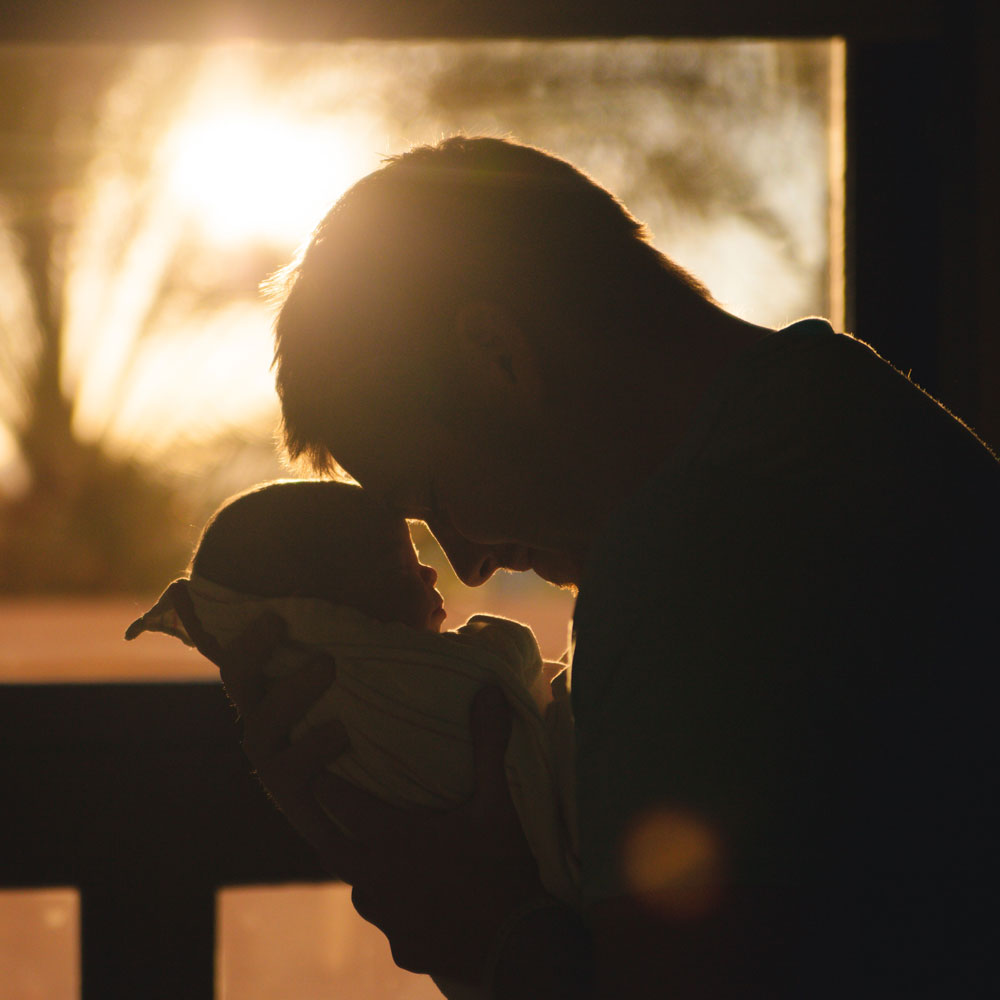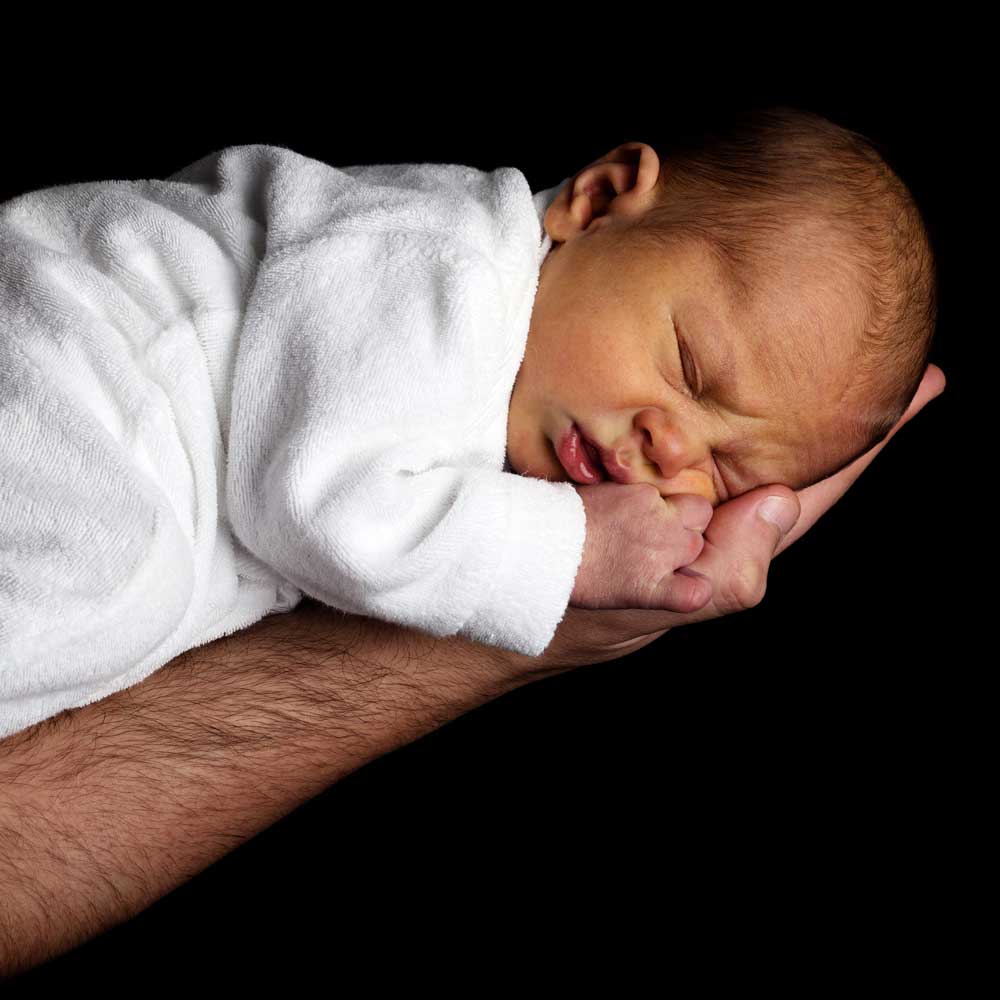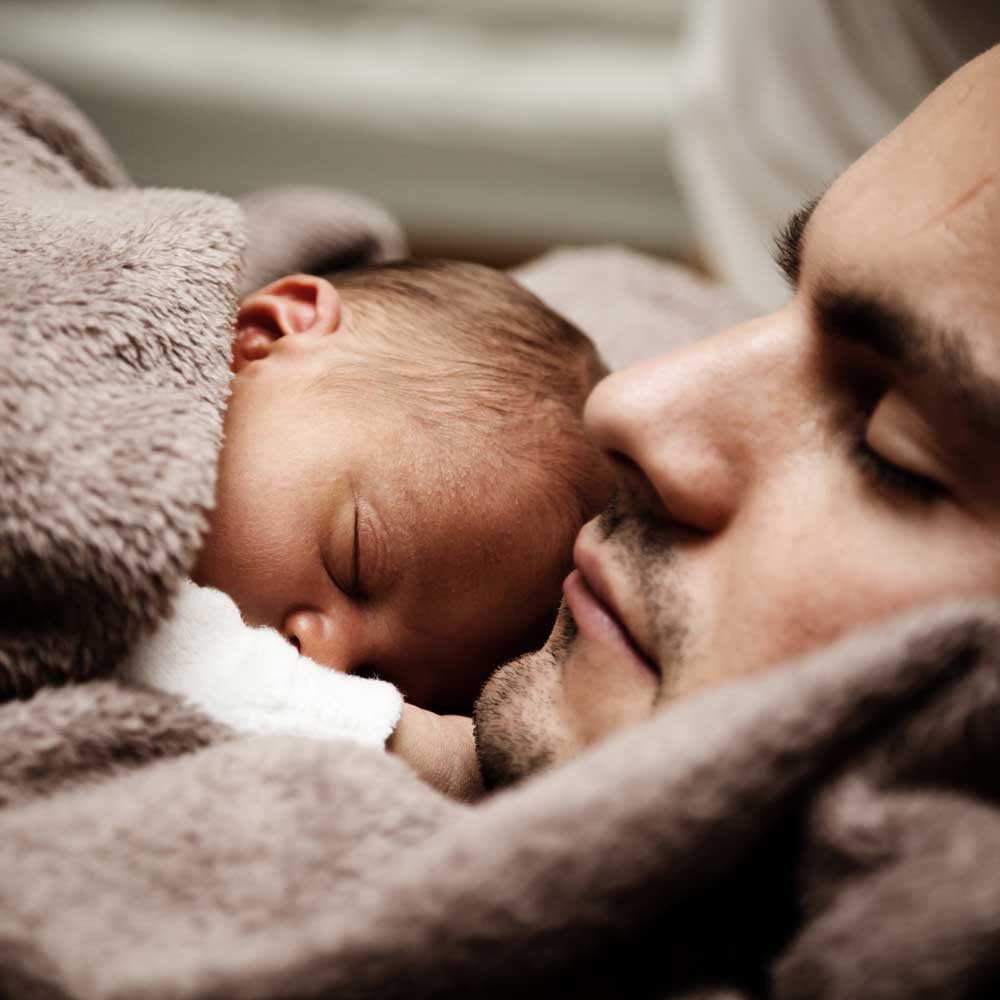9 Tips for New Dads
BY BOOBER
Becoming a father is one of the biggest transitions in life. It’s totally normal to sometimes feel a little overwhelmed while you learn how to best care for your brand-new little one. As you figure out your new family dynamic, it’s important to remember that your role is equally important as your partner’s. Take an active role from day one, and you’ll be able to support your partner and experience the many joys of new parenthood together.
1. Prioritize skin-to-skin contact:

Spending skin-to-skin time with your new baby is an amazing way to begin your relationship. Your baby is now in its 4th trimester and was used to being held all the time and listening to a heartbeat while in the womb. Soon after birth—and after mom has breastfed, if she’s breastfeeding—you can begin skin-to-skin time. Take your shirt off, lay back and place your baby belly-down on your chest. (And yes, we’re talking right in the hospital chair!)
2. Get hands-on from the beginning:
Jump in to providing your baby’s daily care. You’ll bond with your baby, be able to help your partner who is recovering from childbirth, and build your confidence and skills. Diapering, dressing, swaddling, bathing: All these activities will give you special one-on-one time with your baby and will strengthen your bond and connection from the beginning. Take a newborn care class ahead of time to learn the basics.

3. Learn your baby’s cues:
At first it can be hard to figure out what your baby is telling you. The more time you spend with your baby early on, the easier it will be to understand their language. For instance, watch your baby’s head turning to the side (called “rooting”). This means they’re hungry. Other signs of hunger are mouth motion, hands in tight fists, starting to fuss, sticking tongue out, suckling, etc. Allow those cues to guide you in taking care of your baby.
4. Connect through touch:
Stroking, cuddling, holding, and wearing your baby all help them feel secure and bonded.
5. Talk to your baby frequently:
They already know the sound of your voice. Studies show that new babies turn toward their parents voices more frequently than other voices after birth. Talking to your baby helps them hear a familiar sound and keeps them connected. It also teaches them the building blocks of speech. Read your baby stories and sing them songs.
6. Help with feeding:
If your baby is breastfeeding, it can feel like you are not as useful or as important to your baby in the early days. But you are! You can provide practical support (like getting your partner a drink or snack) to physical support (like stuffing pillows under your partner’s arms or behind their back) to emotional support (like listening if she’s having trouble breastfeeding or offering to find a lactation consultant to help.)
If your partner wants to exclusively breastfeed, you will eventually get to help with bottle feeding, but it is recommended that you wait until breastfeeding is well established before offering a bottle (typically around 2-4 weeks). If baby is bottle feeding from the beginning, jump right in and bottle feed your baby. Be sure to follow paced bottle feeding, where baby stays upright and you tip the bottle slightly so that baby receives milk slowly and is able to tell you when they don’t want anymore.
7. Wear your baby:
Babywearing is a wonderful way to decrease fussiness or crying, stabilize a baby’s heartbeat, respiratory rate, and blood pressure. It helps regulate your baby’s body temperature. It allows you to both soothe and bond with your baby and be hands-free, so you can do things like minor housework.
8. Pay attention to your partner’s emotional state:
You’re likely the closest person to her in this period. If she doesn’t seem like herself, seek help. Postpartum depression and anxiety are treatable when diagnosed.

9. Pay attention to your own emotional state:
Often all the focus goes on what the mom needs—and that’s super important. But dads go through a lot in this transitional phase too. If you find yourself needing help, please ask. There are transition-to-parenthood therapists who have practices with a focus on new dads. Self care is important too. When you are rested and relaxed, you are better equipped to care for your partner and baby.